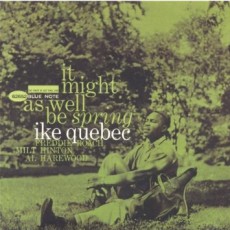
Daily Dose Of Jazz…
Ike Quebec was born Ike Abrams Quebe on August 17, 1918 in Newark, New Jersey and was both an accomplished dancer and pianist. He switched to tenor sax as his primary instrument in his early twenties, and quickly earned a reputation as a promising player. His recording career started in 1940, with the Barons of Rhythm and from 1944 and 1951 he worked intermittently with Cab Calloway.
Over the course of his career Quebec recorded or performed with Frankie Newton, Hot Lips Page, Roy Eldridge, Trummy Young, Ella Fitzgerald, Benny Carter, Sonny Clark, Dodo Green, Jimmy Smith and Coleman Hawkins. He recorded as a leader for Blue Note records in the Forties era, and also served as a talent scout for the label, helping pianists Thelonious Monk and Bud Powell come to wider attention. Due to his exceptional sight-reading skills, he was also an un-credited impromptu arranger for many Blue Note sessions.
His struggles wit drug addiction and the fading popularity of big band music forced Ike to record only sporadically during the 1950s, though he still performed regularly. He kept abreast on new developments in jazz, and his later playing incorporated elements of hard bop, bossa nova and soul jazz. He occasionally recorded on piano, as on his 1961 Blue & Sentimental album, where he alternated between tenor and piano, playing the latter behind Grant Green’s guitar solos.
In 1959 he began what amounted to a comeback with a series of albums on the Blue Note label. Blue Note executive Alfred Lion, though always fond of his music, was unsure how audiences would respond to the saxophonist after a decade of low visibility. So in the mid-to-late 1950s, they issued a series of singles for the juke-box market and audiences ate them up, leading to a number of warmly-received albums. However, his comeback was short-lived when Ike Quebec, the tenor saxophonist with the big breathy sound, passed away from ling cancer on January 16, 1963.
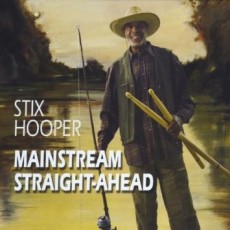
Daily Dose Of Jazz…
Stix Hooper was born Nesbert Hooper on August 15, 1938 in Houston, Texas. He developed an interest in music, drums and percussion at a very early age and starting in junior high, under the direction of George Magruder, the school’s band director, he began devoting much of his time to the study of all aspects of music including composition and song writing.
Studying at Phyllis Wheatley High School, spearheaded by band director, Sammy Harris, Stix eventually formed a band called the Swingsters, later on the Modern Jazz Sextet. While matriculating at Texas Southern University he received continual coaching from members of the Houston Symphony Orchestra and other local professional musicians.
A move to the West Coast, he studied music at California State University, Los Angeles and also received coaching from well-known private instructors and his personal mentors. During this time the Jazz Crusaders were formed eventually becoming the Crusaders, a world-renowned entity.
Hooper has performed, collaborated, composed with and produced for a wide range of music greats, including Arthur Fielder, George Shearing, the Royal Philharmonic Orchestra of London, B.B. King, Grant Green, Grover Washington, Jr., Quincy Jones, Marvin Gaye, Nancy Wilson, The Rolling Stones and numerous others.
He is credited with creating an original style of drumming called “Jazz Funk” that has been incorporated in jazz as well as other musical genres. In addition, Stix Hooper has contributed through his work with the National Academy of Recording Arts and Sciences serving as the National Vice Chairman and the first African American to do so, having previously served three terms as President of the Los Angeles Chapter of NARAS, the first ever three term President, and only the second African American President of that chapter.
Among the numerous acknowledgements and accolades he has garnered are 12 Grammy nominations, No. 1 awards from various music media, named one of the top drummers/musicians by Down Beat, Playboy and other publications, and has received an invitation to the White House, keys to major US cities and several international honors. Soul jazz, jazz funk and mainstream drummer Stix Hooper continues to compose, perform, record and tour.
More Posts: drums
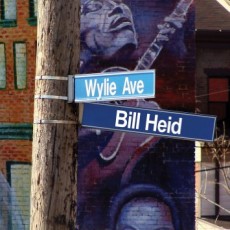
Daily Dose Of Jazz…
Bill Heid was born August 11, 1948 in Pittsburgh, Pennsylvania and came of age hanging out in the clubs that proliferated the Hill District like the Hurricane Bar and the Crawford Grill. With all the jazz greats regularly playing in town during the Sixties he took every opportunity to sit in on piano and learn from these masters. In addition he had hometown natives Ahmad Jamal, Art Blakey, Errol Garner, George Benson, Eddie Jefferson, Mary Lou Williams and Stanley Turrentine to learn from.
Bill took these lessons and experiences and headed West to Detroit and on to Chicago, building a solid blues resume, touring and recording as a pianist with Jimmy Witherspoon, Koko Taylor, Alberta Adams and Fenton Robinson amongst many others. He also played jazz piano on two major Impulse/MCA recordings for Chicago guitarist Henry Johnson.
As an organist Heid has produced several jazz albums as a leader during the mid to late Nineties for Muse/Westside and Savant labels. He spent a number of years in Japan and has toured all over the world as a Jazz Ambassador for the U.S. State Department. Soul jazz and hard bop pianist and organist Bill Heid currently performs at different venues in the Washington, DC area.
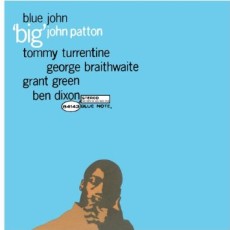
Daily Dose Of Jazz…
Big John Patton was born on July 12, 1935 in Kansas City, Missouri. His mother, a church pianist, taught him how to play the fundamentals. When he was about 13 years old, in 1948, he began to teach himself. He was inspired by the music he heard in Kansas City, but he wanted to play beyond his hometown jazz scene.
In 1954 after high school, he headed east and found professional work in Washington D.C., he found out that R&B star Lloyd Price was playing at the Howard Theater, that he had just fired his pianist and needed a new player. John played a few bars from the introduction to “Lawdy, Miss Clawdy” and was given the job.
It was a five-year relationship that gave him an education he couldn’t have gotten elsewhere. He was Lloyd’s “straw boss” and the leader, he recruited top players including drummer Ben Dixon, who encourage him to check out the Hammond B-3 organ when they played in clubs that had one. A man called Butts first showed Patton how to set up the organ and find the right registrations. When he moved to New York in late 1959, it was his friend Herman Green who played with Lionel Hampton who helped him learn how to play it.
That same year Big John formed his own Hammond organ trio. Blue Note artist Ike Quebec became his mentor, introducing him into Blue Note and to one of the most important relationships in his career, with guitarist Grant Green. He went on to work as a sideman for Lou Donaldson for three and a half years. During the 1960s he became one of the most recognizable figures on the jazz scene and was a driving force of the sound of electric organ.
Over the years he recorded for Blue Note with Harold Alexander, George Coleman, George Braith, Don Wilkerson, Clifford Jordan, Harold Vick, Johnny Griffin, Grachan Moncur III, Ron Carter, Black Star, James “Blood” Ulmer, John Gilmore, John Zorn, Jimmy Ponder, Johnny Lytle, Red Holloway, Art Blakey and Marshall Allen to name a few.
Patton’s style has been resistant to imitation because of its space and economy, often being called minimalist. But he claimed that he emulated the sounds of his favorite trumpet and reed players. By the time the Acid Jazz movement emerged in the 1980s there was a resurgence in interest in his music in the UK and he made several trips to England where he was embraced by the Acid Jazz community.
Patton continued recording until the late Nineties and he developed a loyal following in both Japan and Europe, both of which he toured in addition to his dates in the United States. He recorded as a part of the Red Hot Organization’s compilation album Red Hot + Indigo in tribute to Duke Ellington. He recorded 16 albums as a leader and another twenty-six as a sideman.
Pianist and organist Big John Patton, a major figure in the development of the funk and blues rooted jazz known as soul jazz and considered the inspiration for the Acid Jazz movement, passed away from complications arising from diabetes in Montclair, New Jersey on March 19, 2002.
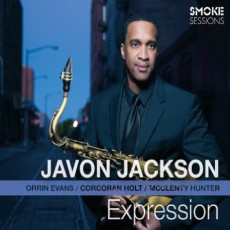
Daily Dose Of Jazz…
Javon Anthony Jackson was born June 16, 1965 in Carthage, Mississippi and raised in Denver, Colorado by parents who were musicians. His mother played the piano, and his father played trumpet, but he didn’t begin playing alto saxophone until age 10. By 16 he changed to the tenor saxophone and was taught by pianist Billy Wallace.
He briefly enrolled at the University of Denver prior to spending part of 1985-86 at Berklee College of Music, which he abandoned to become a Messenger with Art Blakey. Jackson would later finish his undergraduate degree and obtained a master’s degree from the State University of New York at Purchase where he later taught.
The hard bop, soul and mainstream tenor saxophonist has played with the Harper Brothers, Benny Green, Freddie Hubbard and Elvin Jones among others. He has fourteen albums as a leader, mainly on the Criss Cross and Blue Note labels. In between performing, touring or recording, he heads the Jackie McLean Institute of Jazz at the Hartt School at the University of Hartford and has been doing so since 2013.
More Posts: saxophone


